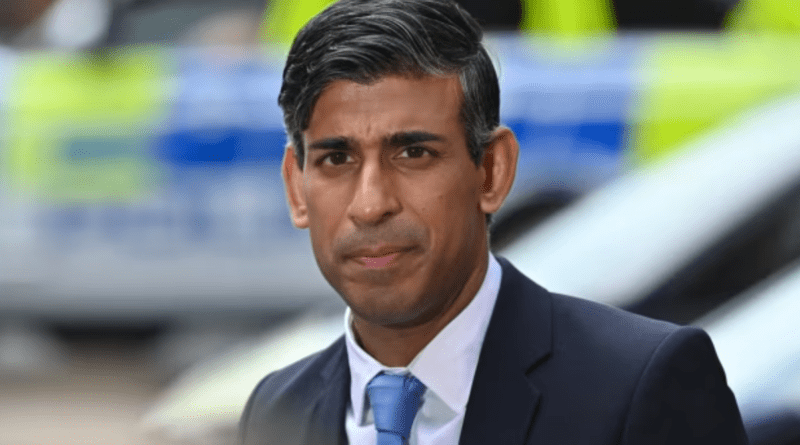Expert Leaders of Indian Origin Are Currently Controlling World Politics
(NEW DELHI) President Tharman Shanmugaratnam of Singapore joined the increasing number of leaders of Indian descent who are influencing global politics in September 2023, just as Rishi Sunak made history in 2022 by becoming the first desi prime minister of Britain.
Leo Varadkar, who was born to an Irish mother and an Indian father, was the first person of Indian descent to hold the position of Taoiseach (Prime Minister) in Ireland. He returned to the position in December of last year for a second term.

Unquestionably, the recent wave of Indian emigrants has been successful in local politics; notable examples are Sunak, Varadkar, US Vice President Kamala Harris, and President Mohamed Irfaan Ali of Guyana, who have all risen to the top of their respective political parties.
And as biotech entrepreneur Vivek Ramaswamy and former South Carolina governor Nikki Haley square off in the Republican primary debates for the US presidential election of 2024, it only serves to highlight how unstoppable the more than 30 million-strong Indian diaspora that is currently dispersed throughout the globe is.
This is particularly true for Indians living in more developed nations such as the US, UK, and Canada, where it is evident that they participate in electoral politics.
The Delhi-based Observer Research Foundation claims that as Indian expatriate populations become increasingly significant, both in terms of their numerical magnitude and their economic contributions, the host nation finds itself obliged to give them greater consideration.
According to the US-based Indiaspora’s 2021 Government Leaders list, over 200 individuals of Indian descent hold prominent positions in up to 15 different nations.
Men with Indian ancestry are leading six countries at the moment: Prime Minister Rishi Sunak of Britain; President Mohamed Irfaan Ali of Guyana; Prime Minister Antonio Costa of Portugal; President Pravind Jugnauth and President Prithvirajsing Roopun of Mauritius; President Chandrikapersad Santokhi of Suriname; and President Tharman Shanmugaratnam of Singapore.
According to the research, individuals of Indian descent hold positions as ministers, ambassadors, consuls general, and members of a government’s cabinet, in addition to acting as the heads or deputy heads of other nations.
Approximately twelve countries have 55 cabinet ministers of Indian descent, while an additional sixty-three Indian-origin individuals are federal legislators or members of Parliament.
Ten individuals of Indian heritage are ambassadors for their respective countries, while two more hold the position of general consul.
Indians are becoming a powerful political force in the US, not only because of their increasing population of almost four million but also because of their increasing wealth and influence.
With a record five Indian-Americans elected to the House of Representatives in one of the nation’s most divisive midterm elections last year, the Samosa Caucus has undoubtedly emerged as the “flavour of the House.”
The Indian community, which is seen as an important actor in US battleground states, had a significant influence at the polls, as seen by the large turnout of Indian voters in the hotly contested November 2020 presidential race.
Indians are one of the most visible ethnic minorities in Canadian politics; four Indians, Harjit S. Sajjan, Kamal Khera, Anita Indira Anand, and Arif Virani, are members of the current government.
In the September 2021 snap elections, Prime Minister Justin Trudeau secured 158 seats in the 338-member House of Commons, falling short of the 170 seats required for a majority. This resulted in the election of 17 Indo-Canadians, the majority of whom are Sikhs, as Members of Parliament.
The NDP, led by Indian-origin Sikh Jagmeet Singh and including 25 serving MPs in the current Parliament, supports Trudeau’s minority administration.
With 18 Sikh members in the Canadian Parliament in 2019, the Indian Parliament has just 13 Sikh members. In 2015, Prime Minister Justin Trudeau boasted that his government had more Sikhs than Prime Minister Narendra Modi, having appointed four Sikhs to his 30-member Cabinet.
In 1892, Dadabhai Naoroji, a founding member of the Indian National Congress in Bombay, became the first Indian to be elected to the British Parliament.
Fifteen Indian-origin members of Parliament were elected to the British Parliament in 2019. Among them were two prominent cabinet members, Priti Patel, who was appointed Home Secretary, and Rishi Sunak, who was appointed Chancellor of the Exchequer




